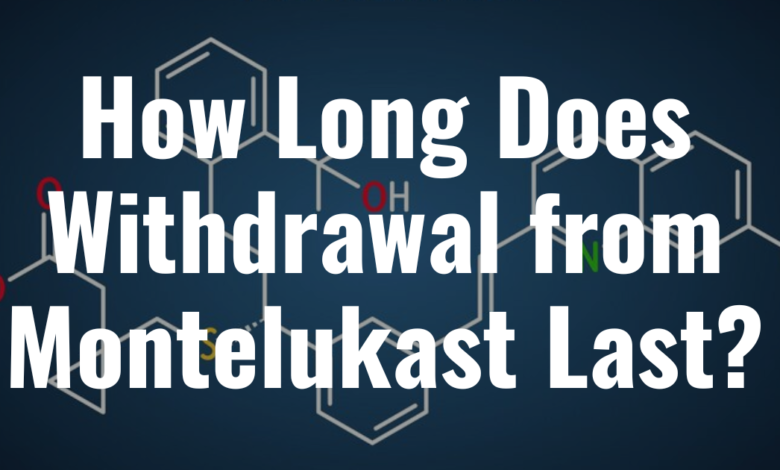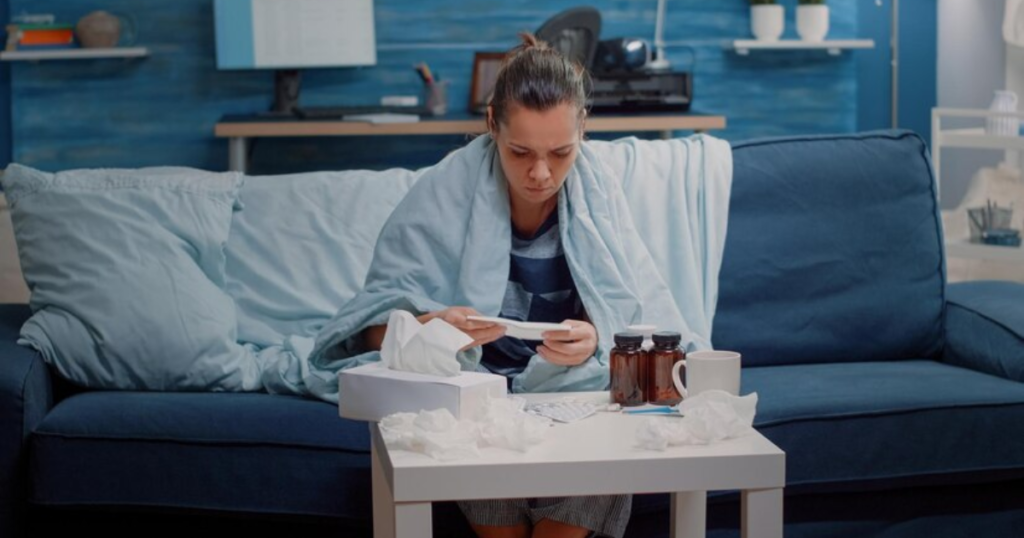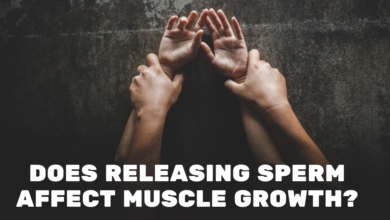How Long Does Withdrawal from Montelukast Last?

Montelukast, which is also called Singulair, is a medicine that helps people with asthma and allergies. Most people can use it without any problems, but some might feel strange when they stop taking it. It’s important to know the duration and effects of withdrawal from Montelukast if you decide to stop using Montelukast.
What is Montelukast?
Montelukast belongs to a class of drugs known as leukotriene receptor antagonists. It works by inhibiting the activity of leukotrienes, which are substances in the body that cause inflammation, bronchoconstriction, and other allergic reactions. This medicine is often used to treat asthma, allergic rhinitis, and exercise-induced bronchoconstriction.
Withdrawal from Montelukast
Withdrawal from Montelukast is the process of quitting or ceasing the usage of the medicine Montelukast. Montelukast is often given to treat asthma and allergic rhinitis. When someone discontinues Montelukast after taking it regularly for an extended period, withdrawal symptoms may occur.
Common Withdrawal Symptoms
Withdrawal from montelukast can produce a range of symptoms affecting different systems of the body. Some of the most common withdrawal symptoms include:
Respiratory Symptoms
- Increased asthma symptoms, such as coughing, wheezing, and shortness of breath
- Nasal congestion and sinus pressure
- Chest tightness or discomfort
Psychological Symptoms
- Mood changes, such as irritability, anxiety, or depression
- Difficulty concentrating or memory problems
- Insomnia or disrupted sleep patterns
Gastrointestinal Symptoms
- Nausea and vomiting
- Abdominal pain or discomfort
- Diarrhea or constipation

How Long Does Withdrawal from Montelukast Last?
The time limit for withdrawal from Montelukast varies from person to person. Withdrawal symptoms may appear within a few days to weeks of stopping the medicine. However, it is important to note that individual experiences may vary.
Initial Phase (Days 1-7)
During the initial phase of Montelukast withdrawal, individuals may start to experience mild to moderate symptoms such as:
- Increased respiratory symptoms (e.g., coughing, wheezing)
- Nasal congestion
- Headaches
- Fatigue
- Mood changes (e.g., irritability, anxiety)
These symptoms typically emerge as the body adjusts to the absence of Montelukast and may peak within the first week of discontinuation.
Peak Phase (Days 7-14)
Individuals may have the most intense withdrawal symptoms during the second week of withdrawal. Symptoms may worsen during this phase, causing discomfort and an increased awareness of physiological changes. Typical symptoms during the peak phase may include:
- Intensified respiratory symptoms
- Increased nasal congestion
- Persistent headaches
- Fatigue and lethargy
- Emotional fluctuations

How To Manage Montelukast Withdrawal Symptoms?
Withdrawal from Montelukast can result in a variety of symptoms that vary in degree and duration. Effective management of these symptoms is critical for reducing discomfort and promoting overall well-being during the withdrawal process. Here are some strategies to consider.
1. Gradual Tapering
When you’ve been taking Montelukast medicine for a long time or in big amounts, doctors might suggest slowly reducing how much you take with their help. This is called tapering.
It means you gradually take less and less of the medicine over some time. Doing this helps your body get used to having less of the medicine without feeling too sick from suddenly stopping it.
2. Symptomatic Relief
Symptomatic relief techniques can aid with specific withdrawal symptoms and overall comfort. Depending on the symptoms, people may find comfort from:
- Headaches: Over-the-counter pain medications like acetaminophen or ibuprofen can help decrease headache pain. It is critical to follow dose directions and check with a doctor if headaches continue or worsen.
- Nasal Congestion: Nasal decongestants and saline nasal sprays can help alleviate nasal congestion and improve breathing. These products reduce inflammation and cleanse nasal passages, relieving congestion symptoms.
- Respiratory Symptoms: Coughing, wheezing, or shortness of breath may worsen during Montelukast withdrawal. Using a rescue inhaler or bronchodilator medicine as directed by a doctor can help manage these symptoms and improve respiratory function.
3. Hydration and Rest
It’s really important to drink lots of water and get enough sleep when you’re trying to stop using something that’s not good for you. Water helps clean out your body and keeps you hydrated, while sleep helps your body get better and gives you energy. Doing these things can make you feel less tired and better while you’re stopping.
4. Nutritional Support
Eating lots of different healthy foods like fruits, veggies, and whole grains can help you feel good when you stop taking Montelukast. These foods have vitamins and minerals that your body needs to work well.
It’s also important to not have too much caffeine, alcohol, or processed foods because they can make you feel worse when you’re stopping the medicine. So, eating good foods and avoiding bad ones can help you feel better overall.
5. Stress Management
It’s really important to deal with stress when you’re trying to stop doing something that’s not good for you. Doing things like taking deep breaths, meditating, or doing yoga can help you feel more relaxed and balanced. Finding fun things to do outside, being creative, or talking to people who care about you can also make you feel better emotionally.

Warnings About Montelukast Withdrawal
Withdrawal from montelukast, a medicine used to treat asthma and allergic rhinitis, can cause specific warnings and symptoms. Here are some possible cautions about montelukast withdrawal:
- Rebound Symptoms: Stopping montelukast abruptly may result in a resurgence of asthma or allergy symptoms. This may involve trouble breathing, wheezing, coughing, or congestion.
- Asthma Worsening: After discontinuing montelukast, some people may see an increase in their asthma symptoms. This may result in more frequent or severe asthma attacks.
- Allergic Reactions: In some situations, people may suffer allergic reactions after discontinuing montelukast. This could result in skin rashes, irritation, swelling, or difficulty breathing.
- Mood Changes: Montelukast use has been connected with mood changes such as anxiety, depression, and irritability. Withdrawal from the medicine may worsen these symptoms in some people.
- Sleep Problems: Some users of Montelukast have reported having vivid dreams or nightmares. Withdrawal from the drug may cause disturbances in sleep habits.
- Headaches: Some people may have headaches after stopping montelukast. These headaches can be minor or severe, and they may last for some time after you stop using the drug.
- Gastrointestinal Symptoms: Nausea, vomiting, diarrhea, or stomach pain are all possible withdrawal symptoms.
More: How To Sleep After Gallbladder Surgery (2024)
Conclusion
So, when people stop taking montelukast, the time it takes for them to feel better can be different for each person. It might be because of how long they’ve been taking the medicine, how much they took, or just how their body works. Some people might feel only a little sick for a short time, while others might feel sick for longer.
It’s important for people who want to stop taking montelukast to talk to a doctor first. The doctor can help them figure out the best way to do it, like slowly taking less of the medicine over time. Knowing about these things can help people decide what’s best for them when they need to stop taking montelukast.
People Also Ask
What is Montelukast withdrawal and how long does it last?
Montelukast withdrawal refers to the discontinuation of a medication used to treat asthma and allergies, causing symptoms such as coughing, breathing difficulties, or wheezing.
What are the common symptoms of Montelukast withdrawal?
When you stop taking Montelukast, you might feel sick for a little while. You could cough, feel like your chest is tight, have trouble breathing, or have a runny or stuffy nose. You might also sneeze a lot and feel very tired. These things usually happen a few days after you stop taking the medicine, but they don’t last too long.
How can I manage Montelukast withdrawal symptoms?
If you want to stop taking Montelukast, you should talk to your doctor first. They might tell you to slowly take less of the medicine instead of stopping all at once. Your doctor might also give you different medicine or suggest things you can do to feel better while you’re stopping Montelukast.
Is it safe to stop taking Montelukast suddenly?
It’s not a good idea to suddenly stop taking Montelukast without talking to your doctor first. If you stop it suddenly, you might feel weird or really bad. Always listen to what your doctor says about stopping any medicine.
How long do Montelukast withdrawal symptoms typically last?
Sometimes, when people stop taking Montelukast, they might feel different for a while. This can vary from person to person. Some might only feel weird for a few days, but others might feel strange for a couple of weeks. It’s important to tell your doctor if you’re feeling this way. They can help you feel better.





I loved as much as youll receive carried out right here The sketch is attractive your authored material stylish nonetheless you command get bought an nervousness over that you wish be delivering the following unwell unquestionably come more formerly again as exactly the same nearly a lot often inside case you shield this hike
Wow amazing blog layout How long have you been blogging for you made blogging look easy The overall look of your web site is magnificent as well as the content
Thank you for the auspicious writeup It in fact was a amusement account it Look advanced to more added agreeable from you By the way how could we communicate